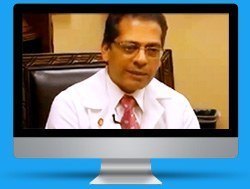Reversing Diabetes
Every cell in the human body needs energy in order to function. The body’s primary energy source is glucose. Glucose from digested food circulates in the blood as a ready energy source for any cells that need it.
Diabetes mellitus, commonly referred to as diabetes, is a metabolic disorder characterized by high blood sugar levels that result from defects in insulin secretion or action or both. It is a chronic disease that causes serious health complications such as renal (kidney) failure, heart disease, stroke and blindness. These tissues are particularly sensitive to high blood sugar levels and can be damaged if blood sugar is too high. To help prevent this, the body produces a hormone called insulin in the pancreas, an organ located behind the stomach. Insulin’s function is to guide glucose into cells in the body which reduces the amount of glucose in the blood to normal ranges. Imbalances in how often insulin is produced, activated, responded to, and broken down can lead to chronic uncontrolled blood sugar, which is labeled diabetes mellitus.
Treatment
Treatment of diabetes involves diet, exercise, medications and other health habits. These will help to improve the blood sugar levels and prevent or minimize the complications of diabetes.
The goal of the treatment is to keep the blood sugar levels within normal range by evaluating and correcting the underlying causes of abnormal blood sugar levels. These often include dietary habits that result in regular “spikes” in the blood sugar, improper signaling or response to the hormone insulin, or improper glucose metabolism and storage in the body.
Diet – Eat a consistent well balanced diet that is high in fiber, low in saturated fat and low concentrated sweets. Meals should be taken on a regular schedule and long periods between eating should be avoided. Research has shown that depending on your genetics and the mechanisms that are causing your diabetes various dietary approaches can be highly effective in controlling diabetes and blood sugar levels. Individuals with diabetes can often find their levels within normal ranges if they practice certain dietary practices such as low-glycemic load Mediterranean eating patterns, high protein-low glycemic load eating patterns, or protein sparing modified fasts.
Exercise - Regular exercise in any form can also help people control their weight and maintain blood sugar levels within normal range. It can also reduce the risk of developing complications of diabetes. Some individuals have a higher-than-normal beneficial response to exercise and may benefit more from weight bearing or cardiovascular exercise based on their genetic profile. Simple saliva testing for genetics can help determine what exercise is most beneficial for your particular body and health conditions.
Smoking and alcohol use – Stopping tobacco use and consuming moderate or no alcohol can benefit individuals in controlling their blood sugar.
Medical treatment – It depends on the type of diabetes, whether the patient has other medical problems, whether the patient has complications of diabetes, age and general health of patient.
Type 1 diabetes involves the daily injection of insulin, usually combination of short acting insulin and longer acting insulin. It is given in two or three injections per day generally around meal times. Type 2 diabetes is typically controlled using a combination.
Anti-diabetic agents used for treatment of insulin dependent and non-insulin dependent diabetes mellitus include :Insulin detemir (Levemir),Insulin lispro (Humalog), Regular insulin (Humulin R, Novolin R) ,Insulin NPH(Humulin N, Novolin N), Insulin aspart( Novolog),Insulin glargine (Lantus),and Insulin glulisine (Apidra).
Oral Anti hyperglycemic Drugs: Prescriptions for lowering blood sugar can be used as a short-term protective measure for our patients who are addressing their blood sugar through health and lifestyle means. These drugs can often lower blood sugar levels and are usually prescribed for people with type 2 diabetes if diet and exercise fail to lower the blood sugar levels. Oral anti hyperglycemic drugs include Sulfonylureas and meglitinides stimulate the pancreas to produce more insulin. Biguanides and thaizolidinediones do not affect the release of insulin but increase the body’s response to it. Glucosidase inhibitors, another class of drug, work by delaying absorption of glucose in the intestine.
Increasing effect of sugar on our health
Dallas
3800 San Jacinto
Dallas, TX 75204
(214) 827-8777
Driving DirectionsHours:
Monday, Wednesday,
Friday: 8:00 a.m. - 11:00 a.m.
Tuesday: 4:00 p.m. - 7:00 p.m.Grapevine
823 Ira E. Woods Avenue
Grapevine, TX 76051
(214) 827-8777
Driving DirectionsHours:
Thursday: 1:30 p.m. - 5:00 p.m.






